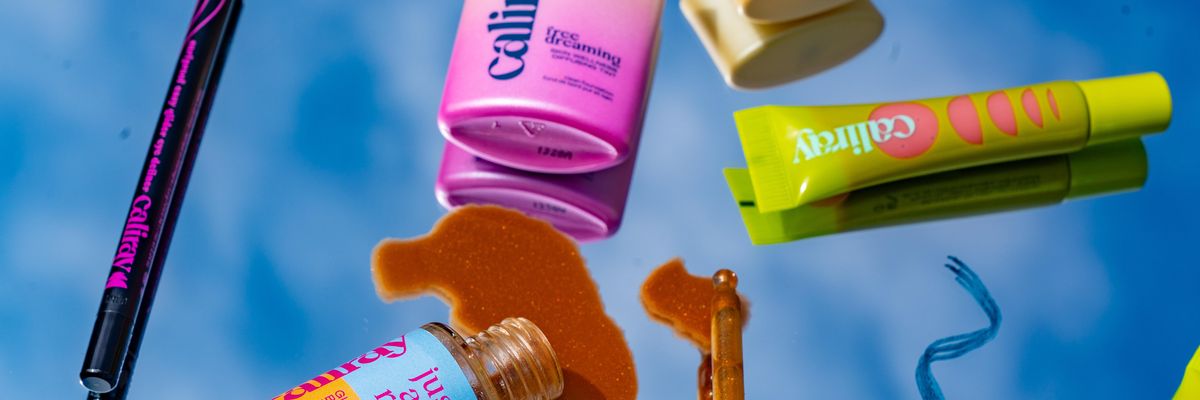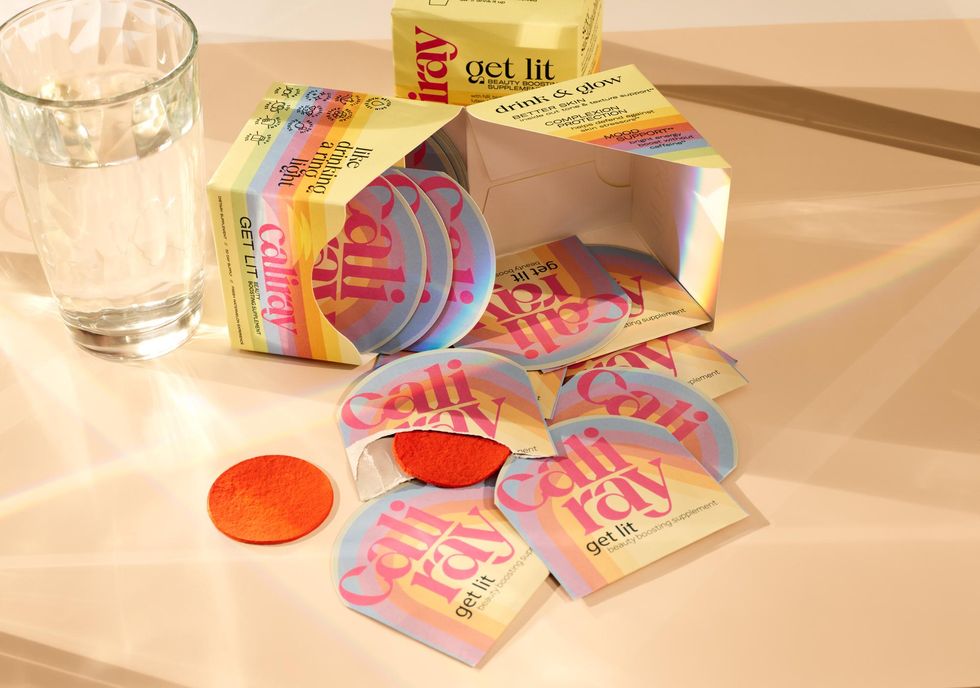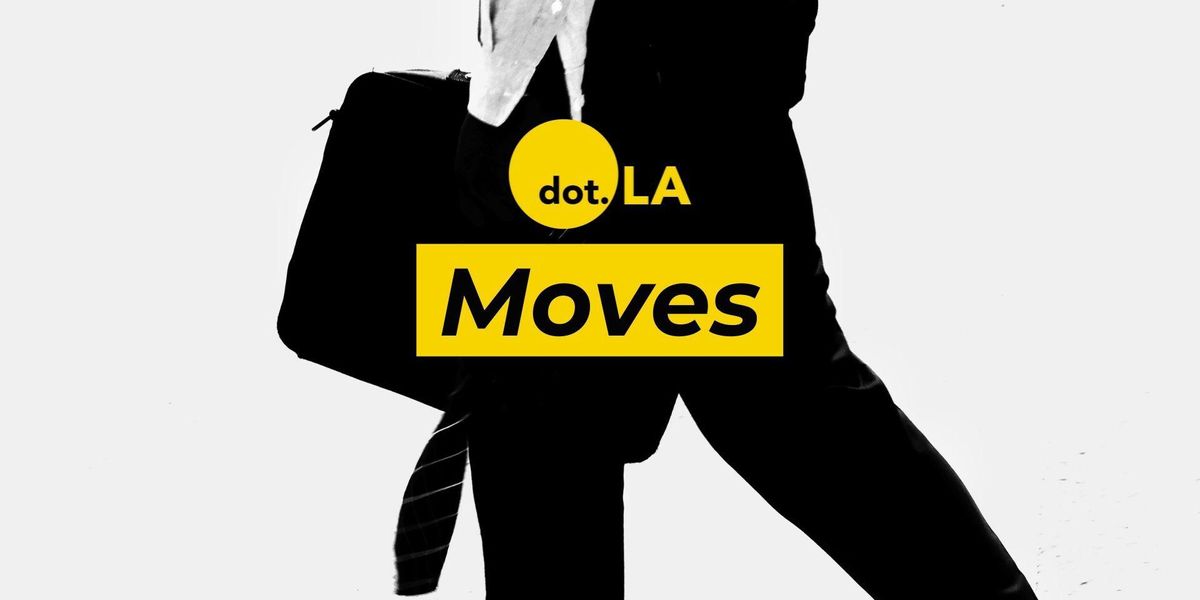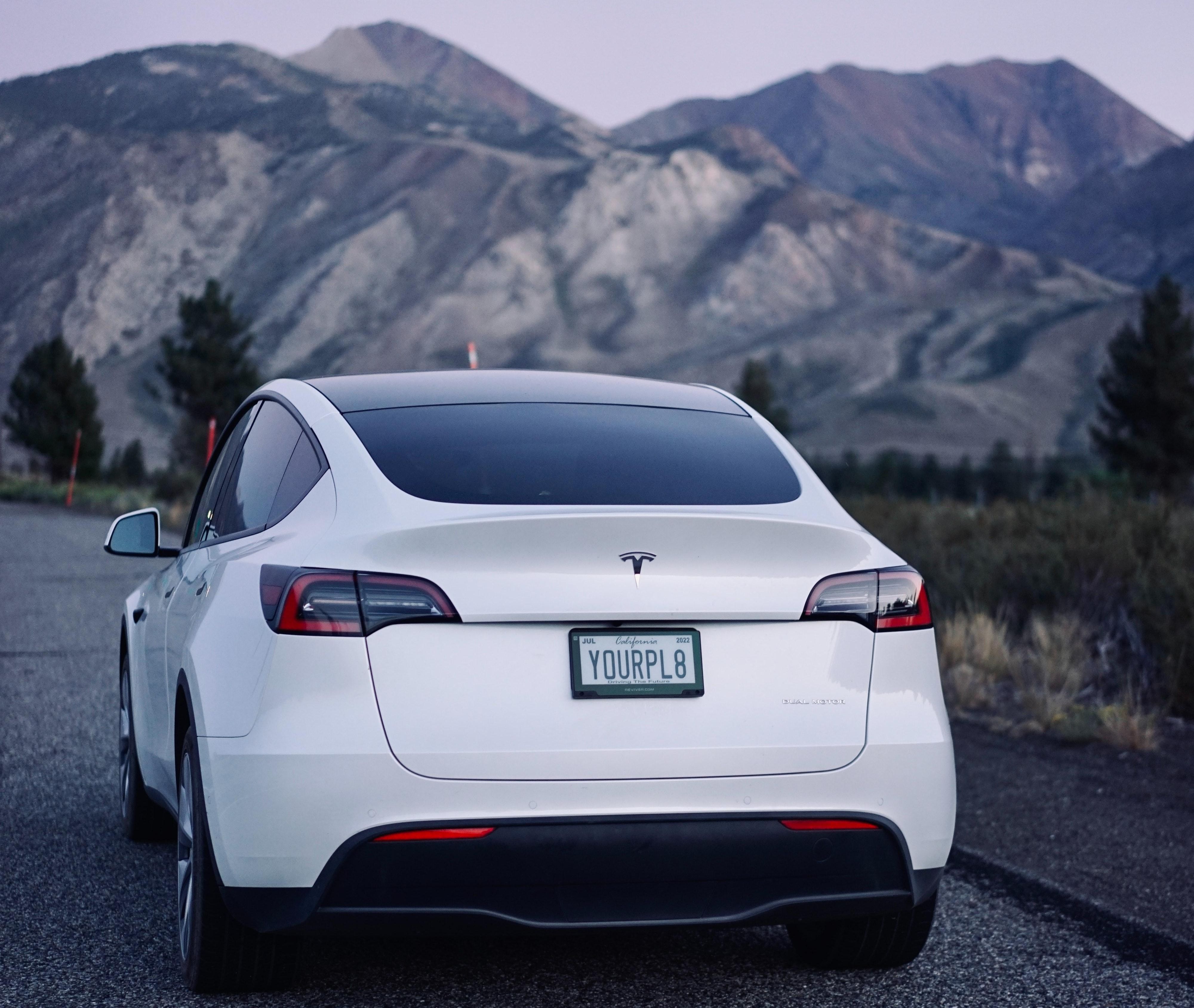

Get in the KNOW
on LA Startups & Tech
X
Caliray
The Beauty Industry Creates 40 Million Tons of Waste Annually. These Brands Are Hoping To Fix That
Andrea Clemett
Andrea Clemett works with dot.LA's social production team. A Los Angeles native, Andrea previously worked as a staff writer for the San Clemente Times where she focused on new businesses and green issues. When she's not chasing stories, she can be found chasing swells along the California coast.
It's no coincidence wellness brands often build momentum on the West Coast. The combination of pristine coastlines and the city breeds an infectious admiration for the environment and an ecosystem for sustainable businesses to thrive.
The irony, of course, is that the beauty industry generates 120 billion units of packaging every year globally—most of which are not truly recyclable. But last year, California toughened the state's recycling system by cracking down on plastic pollution and requiring businesses to recycle at least 30% of packaging by 2028.
That presents a major obstacle for the beauty industry where most products — lipsticks, lotions, eyeshadow cases and plastic tubes — typically drop through the screen in a municipal recycling facility and end up in landfills and the ocean, says Wende Zomnir, co-founder of Caliray, a Newport Beach-based personal care startup.
In other words, the developing trend of curbside recycling infrastructure, where consumers return their empty containers back to the store, has yet to address its inability to process smaller materials. And the waste missed in these facilities contributes to over 40 million tons of garbage generated by Californians annually.
"We're exploring all kinds of options in terms of sustainable materials, and when we find what we like, we roll with it. And we'll try something else next time because all of this stuff is so new," Zomnir told dot. L.A. "The goal is to get this brand to a size where we're starting to make sustainability a real part of the conversation because people say they care about it. But until it's like front and center and a thing, you're not going to get momentum from other brands. There's just not going to be the pressure."
Although some of Caliray’s products cannot be recycled curbside due to their small size, they are eligible for processing through a third-party packaging collection program called PACT Collective based in San Francisco. The nonprofit organization accepts hard-to-recycle items produced by the beauty industry.
The PACT facility documents and sorts each container for secondary use of the material, and what’s left over, gets incinerated. The company acknowledges its eventual goal to phase out reliance on specialty programs and develop new methods for curbside packaging or reuse.
PACT has a handful of drop-off receptacles with Los Angeles partners, mail-back programs with participating members or consumers can ship directly to the company by paying $8 for a return envelope.
Jenna Dover, the co-founder of Caliray, describes herself as a design junkie who intentionally creates products that will be recycled or downsized. Through Caliray’s website, consumers can buy a prepaid shipping label and mail their empty beauty containers to PACT, she adds.
But even as third-party vendors have gained traction with industry professionals, consumers are still in the education stage of understanding the complexities of packaging materials and beauty waste, Zomnir says. Though she anticipates waste will get to a tipping point where consumers get into the routine of sending away their beauty packaging, they’re not there yet.
To that end, Victor Casale, co-founder and president of PACT Collective says that brands are beginning to look at sustainability downstream of the product's end cycle rather than focusing on the upstream of development like natural sourcing, ingredients toxicity, and the absence of child labor or animal testing, Casale says.
“My personal feeling is we should not be competing on sustainability. We should be sharing systems on sustainability initiatives,” Casale adds. “We have found at PACT that our program is best suited for startups and indie brands because they generally can't afford expertise or access to design and material information.”
While more prominent brands are also tuning into sustainable practices, Casale says, the process takes longer to onboard due to the global legacy of policies and systems. Change may take longer than a company creating a sustainable approach from its infancy.
“When brands reach out to us, we give them a ton of information on what can be recycled,” Casale says. “We purposely made it so indie brands can be members and learn because they're the future companies that are going to be the big, multinationals in the future. And we want to make sure that they get started off on the right foot.”
That said, last year personal care and beauty retail giant Sephora piloted a partnership with PACT called 'Beauty (Re)Purposed' in 23 Sephora locations in the U.S. geared for consumers to bring in their empty containers. Other veteran Southern California beauty brands like female-founded Ilia and Prima have also pledged to provide a mailback recycling program through PACT. Zomnir says, however, that Sephora still has yet to announce its future plans with PACT. But if it does, she anticipates the partnership will make a huge impact to move the needle.
From Your Site Articles
- Behind Her Empire: AAVRANI Co-Founder Rooshy Roy On Redefining Success and Embracing Identity ›
- Microsoft's Pending Activision Buyout Could Bring an Unexpected Twist: Unionization ›
- True Botanicals Founder Hillary Peterson on Launching A Company To Fulfill A Market Need ›
- The Carter Agency Allegedly Scammed Hundreds of Influencers - dot.LA ›
Related Articles Around the Web
Andrea Clemett
Andrea Clemett works with dot.LA's social production team. A Los Angeles native, Andrea previously worked as a staff writer for the San Clemente Times where she focused on new businesses and green issues. When she's not chasing stories, she can be found chasing swells along the California coast.
LA Tech ‘Moves’: MeWe Taps Apple Co-founder, Aspiration Swipes Tesla Director
12:00 PM | August 05, 2022
Photo by James Opas | Modified by Joshua Letona
“Moves,” our roundup of job changes in L.A. tech, is presented by Interchange.LA, dot.LA's recruiting and career platform connecting Southern California's most exciting companies with top tech talent. Create a free Interchange.LA profile here—and if you're looking for ways to supercharge your recruiting efforts, find out more about Interchange.LA's white-glove recruiting service by emailing Sharmineh O’Farrill Lewis (sharmineh@dot.la). Please send job changes and personnel moves to moves@dot.la.
***
Aspiration, a sustainable financial services company, appointed former Tesla director Tim Newell as its first chief innovation officer. Prior to leading teams at Tesla, Newell also worked under the Clinton Administration as a deputy director for policy in the White House office of science and technology.
All-electric vehicle manufacturing company Phoenix Motorcars hired industry veterans Lewis Liu as senior vice president of program management office and business development. Phoenix also hired Mark Hastings as senior vice president of corporate development and strategy and head of investor relations.
Counterpart, a management liability platform, welcomed Claudette Kellner as insurance product lead and Eric Marler as head of claims. Kellner served at Berkley Management Protection as vice president, while Marler previously served as an assistant vice president at the Hanover Insurance Group.
Legal tech and eDiscovery veteran Mark Wentworth joined compliance software company X1 as external vice president of sales and business development.
Sameday Health, a testing and healthcare provider, named Sarah Thomas as general counsel. Thomas previously served at digital health company Favor.
MeWe, an ad-free and privacy-first social network, tapped the co-founder of Apple Steve Wozniak to its advisory board, and co-founder of Harvard Connection Divya Narendra to its board of directors.
Internet marketplace Ad.net, welcomed former Interpublic CEO David Bell to its board of directors.
Science and technology company GATC Health, appointed addiction specialist Jayson A. Hymes as a new advisory board member.
AltaSea, a non-profit organization that aims to accelerate scientific collaboration, added South Bay philanthropist Melanie Lundquist to its board of trustees.
Correction:An earlier version stated Divya Narendra was added to MeWe's advisory board.
From Your Site Articles
Related Articles Around the Web
Read moreShow less
Decerry Donato
Decerry Donato is a reporter at dot.LA. Prior to that, she was an editorial fellow at the company. Decerry received her bachelor's degree in literary journalism from the University of California, Irvine. She continues to write stories to inform the community about issues or events that take place in the L.A. area. On the weekends, she can be found hiking in the Angeles National forest or sifting through racks at your local thrift store.
Here's How To Get a Digital License Plate In California
03:49 PM | October 14, 2022
Photo by Clayton Cardinalli on Unsplash
Thanks to a new bill passed on October 5, California drivers now have the choice to chuck their traditional metal license plates and replace them with digital ones.
The plates are referred to as “Rplate” and were developed by Sacramento-based Reviver. A news release on Reviver’s website that accompanied the bill’s passage states that there are “two device options enabling vehicle owners to connect their vehicle with a suite of services including in-app registration renewal, visual personalization, vehicle location services and security features such as easily reporting a vehicle as stolen.”
Reviver Auto Current and Future CapabilitiesFrom Youtube
There are wired (connected to and powered by a vehicle’s electrical system) and battery-powered options, and drivers can choose to pay for their plates monthly or annually. Four-year agreements for battery-powered plates begin at $19.95 a month or $215.40 yearly. Commercial vehicles will pay $275.40 each year for wired plates. A two-year agreement for wired plates costs $24.95 per month. Drivers can choose to install their plates, but on its website, Reviver offers professional installation for $150.
A pilot digital plate program was launched in 2018, and according to the Los Angeles Times, there were 175,000 participants. The new bill ensures all 27 million California drivers can elect to get a digital plate of their own.
California is the third state after Arizona and Michigan to offer digital plates to all drivers, while Texas currently only provides the digital option for commercial vehicles. In July 2022, Deseret News reported that Colorado might also offer the option. They have several advantages over the classic metal plates as well—as the L.A. Times notes, digital plates will streamline registration renewals and reduce time spent at the DMV. They also have light and dark modes, according to Reviver’s website. Thanks to an accompanying app, they act as additional vehicle security, alerting drivers to unexpected vehicle movements and providing a method to report stolen vehicles.
As part of the new digital plate program, Reviver touts its products’ connectivity, stating that in addition to Bluetooth capabilities, digital plates have “national 5G network connectivity and stability.” But don’t worry—the same plates purportedly protect owner privacy with cloud support and encrypted software updates.
5 Reasons to avoid the digital license plate | Ride TechFrom Youtube
After the Rplate pilot program was announced four years ago, some raised questions about just how good an idea digital plates might be. Reviver and others who support switching to digital emphasize personalization, efficient DMV operations and connectivity. However, a 2018 post published by Sophos’s Naked Security blog pointed out that “the plates could be as susceptible to hacking as other wireless and IoT technologies,” noting that everyday “objects – things like kettles, TVs, and baby monitors – are getting connected to the internet with elementary security flaws still in place.”
To that end, a May 2018 syndicated New York Times news service article about digital plates quoted the Electronic Frontier Foundation (EFF), which warned that such a device could be a “‘honeypot of data,’ recording the drivers’ trips to the grocery store, or to a protest, or to an abortion clinic.”
For now, Rplates are another option in addition to old-fashioned metal, and many are likely to opt out due to cost alone. If you decide to go the digital route, however, it helps if you know what you could be getting yourself into.
From Your Site Articles
- 8 Alternatives to Uber and Lyft in California - dot.LA ›
- Automotus Will Monitor Santa Monica's New Drop-Off Zone - dot.LA ›
- Metropolis CEO Alex Israel on Parking's Future - dot.LA ›
Related Articles Around the Web
Read moreShow less
Steve Huff
Steve Huff is an Editor and Reporter at dot.LA. Steve was previously managing editor for The Metaverse Post and before that deputy digital editor for Maxim magazine. He has written for Inside Hook, Observer and New York Mag. Steve is the author of two official tie-ins books for AMC’s hit “Breaking Bad” prequel, “Better Call Saul.” He’s also a classically-trained tenor and has performed with opera companies and orchestras all over the Eastern U.S. He lives in the greater Boston metro area with his wife, educator Dr. Dana Huff.
steve@dot.la
RELATEDTRENDING
LA TECH JOBS



